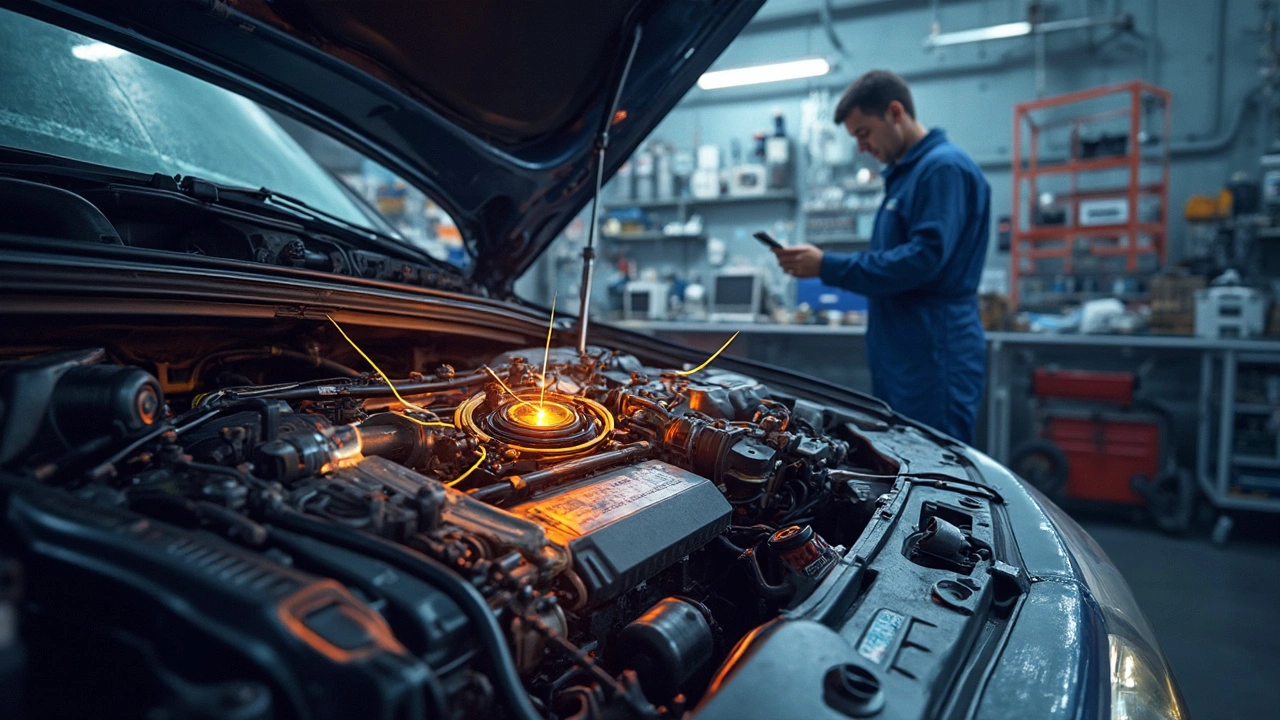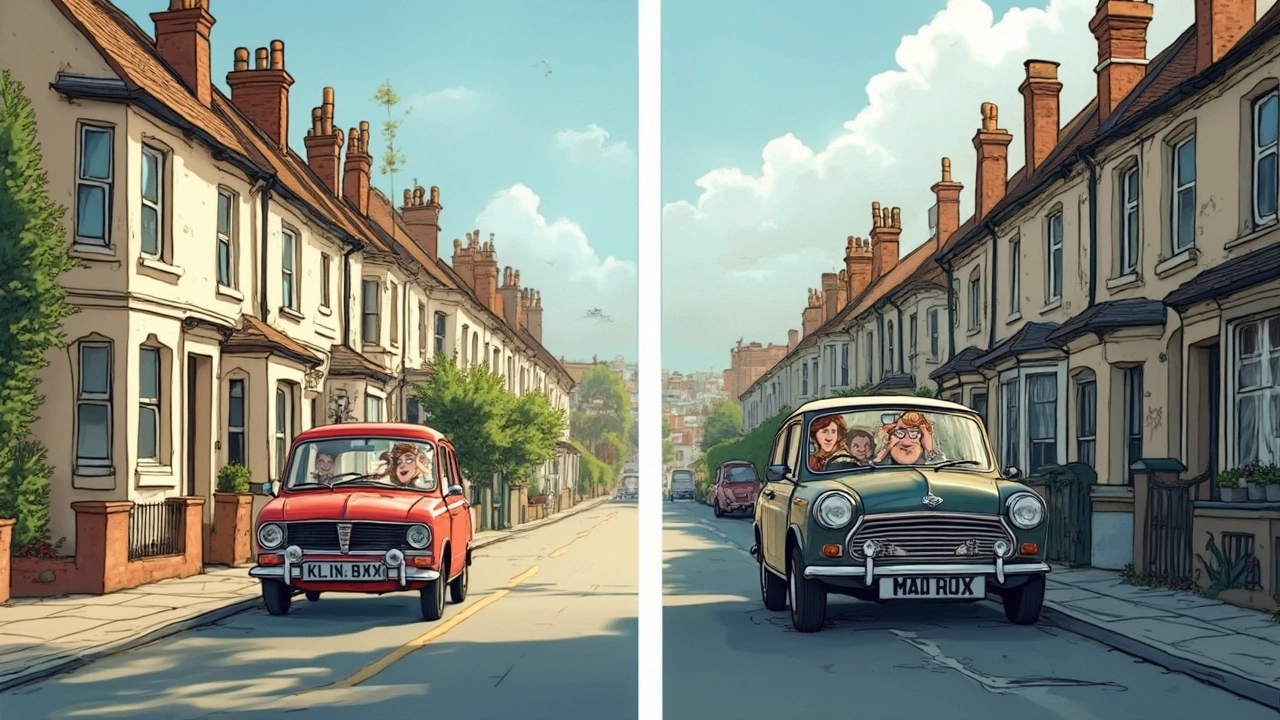A weird noise under the hood can turn a calm drive into a panic. Plenty of folks hear something off and cross their fingers it’ll just go away, but when it comes to your clutch, hoping won’t cut it. If you catch the sound early, you can stop damage before it leaves you stuck on some dodgy backroad.
The classic clue that your clutch is failing? It starts with an odd sound you’ve probably never heard before—maybe a squeak when you press the pedal, or a grinding noise that kicks in right as you shift. These aren’t just “quirks.” They’re your clutch begging for help. Some drivers swear their car gives off a faint rattling or chirping, especially when the engine’s running but the car isn’t moving. Others notice a grinding noise only in certain gears, which could mean parts inside the clutch are worn down.
If you ignore these signs, things get ugly fast. A noisy clutch almost always turns into a bigger fix, and that means more cash out of your pocket. So next time you hear something out of the ordinary, listen up—it could save you money and a real headache.
- Recognizing a Bad Clutch by Its Sound
- Common Noises and What They Mean
- Clutch Noise vs. Other Car Problems
- Why Clutch Sounds Get Worse Over Time
- Fixes and Prevention Tips
Recognizing a Bad Clutch by Its Sound
The first sign that your bad clutch sound isn’t just your imagination is when you notice a new noise each time you push the clutch pedal. Pay attention to when it happens. If it’s only there while pressing the clutch, you can almost bet the clutch is the culprit.
There are a few specific sounds to watch for:
- Squeaking or chirping: Usually high-pitched and happens most right as you press the clutch. This often points to a worn release bearing. It’s one of the easiest problems to spot by ear alone.
- Grinding: If you hear a gritty, mechanical grind when you shift gears, it could mean the clutch isn’t disengaging fully. This lets the gears grind against each other, and that’s just as bad as it sounds.
- Rattling or clunking: Hear a rattling when your foot’s off the clutch, or a dull thud under your feet? Sometimes this means worn clutch fork or loose parts inside your clutch kit. It’s a classic sign things are wearing out fast.
Don’t confuse clutch noises with other car sounds. For example, a screeching belt usually keeps going as long as the engine runs, while clutch noises tend to change depending on your foot’s position.
Want a trick? Try this:
- Start your car and let it idle.
- Push the clutch pedal in and out, slowly.
- Listen for any squeaks, grinds, or rattles only while the pedal is moving.
If those sounds show up, odds are good you’re dealing with clutch problems. Based on a recent survey by AAA, drivers who caught clutch noise issues early saved an average of 40% on repairs compared to those who waited until total failure.
| Sound | Possible Cause |
|---|---|
| Squeak/Chirp | Worn release bearing |
| Grinding | Clutch not fully disengaging |
| Rattle/Clunk | Loose or worn clutch kit parts |
Spotting a bad clutch sound early is all about listening for something that wasn’t there last week. Don’t just turn up the radio—your wallet and your car will thank you later.
Common Noises and What They Mean
Not all funky car noises point straight to the clutch, but a few are dead giveaways. Let’s break down what you might hear and what it actually means for your bad clutch sound worries.
- Squeaking When You Press the Pedal: This usually means the clutch pedal needs lubrication or the release bearing is worn out. A dry or squeaky sound isn’t just annoying, it’s practically the clutch’s way of waving a red flag.
- Grinding or Crunching: If you’re hearing grinding as you shift, classic sign your clutch disc or pressure plate is beat up. Sometimes, it’s a misadjusted clutch cable, but more often, it’s just plain wear and tear.
- Chirping or Rattling at Idle: When the car sits still and you hear a constant chirp or soft rattle—especially when the clutch is disengaged—it’s often your throwout bearing. Ignore it and it’ll just get louder…and pricier to fix.
- Whining Noises: High-pitched whining can mean damaged pilot bearings or issues with the transmission input shaft. That’s not a "maybe next month" issue. The longer you wait, the bigger the repair bill.
These clutch problems don’t always show up together. Sometimes you only get one weird noise. But even one unusual sound is a hint something’s up inside the clutch kit itself.
| Noise | Likely Cause | Urgency |
|---|---|---|
| Squeak | Worn release bearing/pedal parts | Low to Medium |
| Grinding | Bad clutch disc/pressure plate | High |
| Chirping | Throwout bearing | Medium to High |
| Whine | Pilot/throwout bearing, input shaft | High |
One overlooked fact: replacing a clutch kit costs far less if you catch the problem early. Mechanics see it all the time—drivers roll in with a simple squeak, ignore it, and wind up needing a whole new transmission.

Clutch Noise vs. Other Car Problems
Trouble is, cars love making weird sounds, and it’s not always clear if the clutch is to blame. Drivers often mix up bad clutch sound with other issues, like transmission problems or worn-out brakes. So how do you tell if your clutch is really the one crying out for help?
If you hear a grinding noise only when you change gears or push the clutch pedal down, odds are it’s the clutch or the clutch release bearing. If you hear screeching that goes silent when you press the clutch pedal, the clutch release bearing is a top suspect. On the other hand, if the noise is always there—doesn’t matter if you’re shifting, accelerating, or just idling—it’s probably not the clutch, but something like a failing belt or even the gearbox.
Here’s a simple cheat sheet to help you match up noises with possible causes:
- Grinding when shifting: Usually the clutch not disengaging fully, worn synchronizers, or low transmission fluid.
- Squealing or chirping when the pedal is pressed: Common with a worn clutch release bearing or pilot bearing.
- Rattling when idling (goes away with clutch pressed): Likely the clutch release bearing.
- Squeaking all the time: Could be loose belts, brakes, or suspension—not the clutch.
If you're still stuck, clutch noise usually depends on what your feet are doing. Press the pedal and listen. If the sound changes, you’re dealing with a clutch problem. No change? Check elsewhere.
To give you a clearer idea, here’s a quick table breaking down when certain car noises kick in and what they might mean:
| Noise | When It Happens | Likely Cause |
|---|---|---|
| Grinding | When shifting gears | Clutch/slave cylinder or worn synchronizer |
| Chirping/Squealing | Pedal pressed down | Clutch release/pilot bearing |
| Constant squeak | All the time | Belt or suspension issue |
| Clunking | Hitting bumps | Suspension, not clutch |
Sorting out car noises isn’t rocket science, but paying attention to what triggers the noise—clutch pedal, gear shift, acceleration, or nothing special—makes all the difference. Catching a bad clutch sound early means you’re way less likely to get stranded or hit with a huge repair bill.
Why Clutch Sounds Get Worse Over Time
It’s easy to hope a weird noise will just disappear, but a bad clutch sound always gets worse if you ignore it. The reason is simple: clutch parts wear out, and they aren’t self-healing. Every time you press that pedal, little bits of the clutch disc, pressure plate, or release bearing wear away. Once they start to grind or squeak, it means they’re already past their prime.
Here’s what actually causes the noise to ramp up:
- Friction material loss: The clutch disc is covered in a friction material that naturally wears down. As it gets thinner, it can’t grip as well. You’ll hear more clutch problems get louder, especially when starting from a stop.
- Release bearing failure: The bearing can start as a soft squeak, but over time, it gets rougher. Ignore it, and you’ll hear a full-on growl or screech.
- Heat build-up: If you ride the clutch or get stuck in stop-and-go traffic, excessive heat makes wear go faster. That’s when those car noises become more frequent and far harder to ignore.
- More slack in the system: Worn parts develop extra play. This means every shift starts to feel sloppy and noisy. The rattles get worse as metal parts move around more than they should.
A clutch doesn’t usually fail all at once. It’s a gradual slide, and the noises you hear are like a countdown. According to a 2023 survey from a UK auto repair group, 65% of clutch failures are avoidable if the first warning sounds are checked.
| Stage | Noise | Common Cause |
|---|---|---|
| Early | Chirp or faint squeak | Release bearing just starting to fail |
| Middle | Grinding or growling | Friction material almost gone |
| Late | Noise all the time, hard shifting | Serious damage to clutch or transmission |
Leaving these sounds alone isn’t saving you money—it’s making future clutch repair jobs more expensive. If you hear that first odd squeak or grind, get it checked before you end up needing a whole new clutch kit and maybe a tow truck too.

Fixes and Prevention Tips
If you’re hearing any of those telltale bad clutch sound clues—like squeaks, rattles, or grinding—the first thing to do is quit ignoring them. Quick action usually means you’ll pay less at the shop and avoid being stranded. Here’s what you can actually do if your clutch is making weird noises.
- Don’t Keep Driving With Strange Noises: When you spot a clutch problem, don’t wait to get it checked out. I once ignored a faint whine in Imogen’s car, and pretty soon we had to order a whole clutch kit. Ouch.
- Check Your Clutch Fluid: For cars with a hydraulic clutch, low or dirty fluid can cause issues. Check your level and quality—it should be clear, not dark or full of debris. Top it up with the right type if needed.
- Inspect Linkages and Cables: Sometimes, a simple adjustment of your clutch cable or linkage fixes odd noises and makes shifting smoother. If you’re handy, grab a flashlight and take a look for any slack or obvious wear.
- Replace Worn-Out Parts: If a mechanic confirms you need fixes, don’t cheap out on parts. Good clutch kits usually include the clutch disc, pressure plate, and release bearing. Swapping all three is smarter in the long run than doing them one at a time.
- Drive Smart: You can actually keep your clutch healthy by using it less. Don’t “ride” the clutch pedal at lights, don’t rest your foot on it while driving, and avoid aggressive takeoffs. It all means less wear and fewer clutch repairs down the road.
To put things into perspective, here’s a quick look at average clutch repair costs in the US. Prices swing a lot depending on what’s wrong, your car model, and where you live, but it’s clear that prevention really pays off.
| Problem | Average Cost (USD) |
|---|---|
| Clutch Adjustment | $50 - $150 |
| Clutch Fluid Replacement | $75 - $120 |
| Clutch Kit Replacement | $700 - $1,100 |
| Flywheel Replacement | $400 - $800 |
Letting a bad clutch sound go unchecked can turn a $100 fix into a thousand-dollar nightmare. Tuning into the noise early and acting quickly is the easiest way to avoid a busted clutch and a busted budget.

